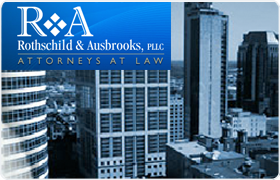 Thompsons Station Credit & Debt Lawyers, Tennessee
Thompsons Station Credit & Debt Lawyers, Tennessee
Sponsored Law Firm
-
 x
x

Click For More Info:
-
Rothschild & Ausbrooks, PLLC
1222 16th Ave. South, Suite 12 Nashville, TN 37212» view mapBankruptcy Filing, Chapter 7, Chapter 13 You Are Not Alone. We Can Help.
Our law firm encourages communication. We respond to calls and e-mails promptly. This is your case, and you will be involved every step of the way.
800-966-8531
Lawyers
1-2 of 2 matches
Bankruptcy, Banking & Finance, Litigation, Credit & Debt
Bankruptcy, Banking & Finance, Business & Trade, Credit & Debt




 Mary Ausbrooks Nashville, TN
Mary Ausbrooks Nashville, TN Contact UsCall or Email
Contact UsCall or Email LinkedIn
LinkedIn